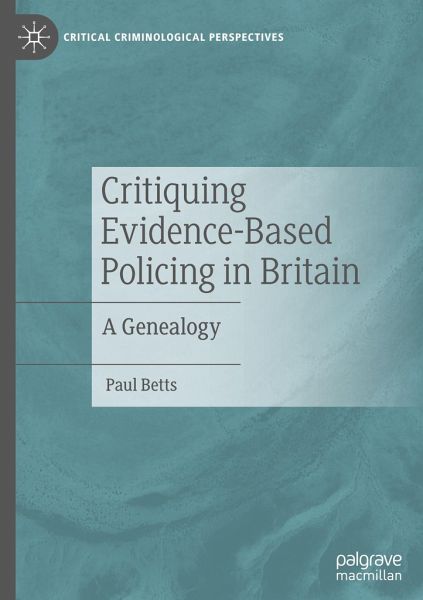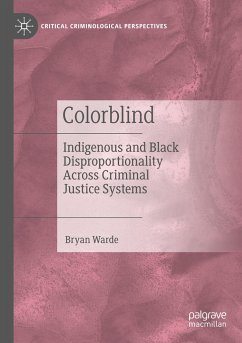
Critiquing Evidence-Based Policing in Britain
A Genealogy
Versandkostenfrei!
Versandfertig in 6-10 Tagen
83,99 €
inkl. MwSt.
Weitere Ausgaben:

PAYBACK Punkte
42 °P sammeln!
Evidence Based Policing (EBP) exerts significant influence on how actors think, act and speak about UK policing to the point that it is becoming institutionalised. Inspired by the insights of Michel Foucault into power-knowledge, governmentality and institutional reform over time, this book provides a comprehensive account of the emergence of EBP in Britain as well as original discourse analysis and analytical research into the texts produced by EBP. It presents a new history of EBP presented around EBP's story-lines, subject positions and the institutional changes it has created. This history...
Evidence Based Policing (EBP) exerts significant influence on how actors think, act and speak about UK policing to the point that it is becoming institutionalised. Inspired by the insights of Michel Foucault into power-knowledge, governmentality and institutional reform over time, this book provides a comprehensive account of the emergence of EBP in Britain as well as original discourse analysis and analytical research into the texts produced by EBP. It presents a new history of EBP presented around EBP's story-lines, subject positions and the institutional changes it has created. This history shows EBP shares a genealogical heritage with modern discourses of managerialism and neoliberalism. EBP's roots are traced and it is re-presented as an extension of the problematic relationship in the production of criminological knowledge and the British state. This history fundamentally challenges the notion on which EBP rests: basing policing policy upon independent, robust knowledge. Instead this book argues EBP should be subject to greater illumination and challenge, suggesting EBP is a contestable device that is doing political work. It speaks to those interested in policing, critical criminology and political science.












